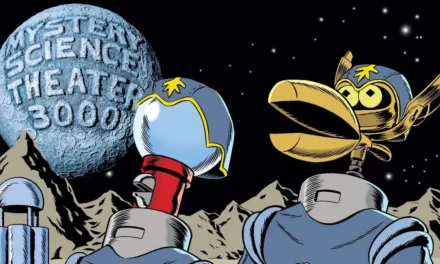
The first question that I necessarily ask myself when deciding upon case studies for the ‘Forgotten Television Drama’ project is, “Can I accurately call this programme forgotten?” Thinking about this too hard is often an invitation to indecision. A case can be made that almost any old television drama has been forgotten. There are very few programmes that fulfil all of the criteria for being remembered: where tapes survive, are available to view and for which there is a continued, demonstrable interest in, normally evident through published writing, either academic or non-academic. Unless I’m stupid enough to say to my PIs (John Hill and Lez Cooke), “I’ve discovered this great TV play! Its called ‘Cathy Come Home’. Have you heard of it?” I can usually make a credible case for most programmes being ‘forgotten’ television.
Equally, though, there will almost always be one person, somewhere, who can remember any television programme, however obscure and long ago. This sense, of nothing ever quite falling totally out of circulation, can be very helpful for a researcher in my position. Recently, while trying to come up with a chronology of British TV boardroom dramas, I sought online advice on ‘The Mausoleum Club’, and discovered one serial, Starr and Company, was made by the BBC as early as 1958. I’m not sure that I could ever have found this out for myself, unaided.
While thinking about the problem of how to define “forgotten” television drama, and the various different forms that this “forgotten” status might take (wiped, lost, neglected, undervalued, all meaning slightly different things) I decided to carry out a more systematic exercise in establishing how much television drama was made, how much of it fell into five major categories (series, serials, single plays, soap operas and childrens’) and how much of it could be defined as ‘forgotten’ in one way or another.
Here is a table of all television drama transmitted for the first time on British television for the week between Sunday the 16th and Saturday the 22nd of February 1964 (my information comes from the London editions of the Radio Times and the Granada TV Times, so there will likely be regional variations to this data). Choosing fifty years ago meant that anybody who remembers these programmes from the time of transmission would have to be in their sixties by now, so perhaps I could expect to find most of this material now falling into obscurity.
No tapes survive for any of the programmes listed in italics. Productions in normal text survive, and those listed in bold survive and have been commercially released on DVD.
All UK TV drama broadcast between Sunday 16 – and Saturday 22 February 1964 (Total amount: 21 hours approx. BBC 8h 15m. ITV 12h 45m.)
Series
BBC: (3h)
Doctor Finlay’s Casebook: A Shot in the Arm (50m)
Z Cars: A Question of Storage (50m)
Dixon of Dock Green: A Family Affair (50m)
ITV: (7h)
Ghost Squad: Lost in Transit (ATV, 50m)
Crane: Death is a Black Camel (Rediffusion, 50m)
The Plane Makers; A Paper Transaction (ATV, 50m)
The Saint: Marcia (ITC, 50m)
It’s Dark Outside: You Play the Red and the Black Comes Up (Granada, 50m)
GS5: An Eye for an Eye (ATV, 50m)
The Avengers: The Outside In Man (ABC, 50m)
Serials:
BBC: (1h)
Martin Chuzzlewit: Episode 5 (25m)
Doctor Who: The Roof of the World (25m)
Plays
BBC: (3h 15m)
Festival: Say Nothing (95m)
Teletale: The Room (30m)
First Night: The Rock Pool (75m)
ITV: (3h 15m)
Armchair Theatre: The Pretty English Girls (ABC, 50m)
Play of the Week: I Can Walk Where I Like, Can’t I? (ATV, 70m)
Espionage: Once A Spy… (ITC, 50m)
Soap Operas
BBC: (1h)
Compact: Walls Have Ears (25m)
Compact: In the Air (25m)
ITV: (2h)
Coronation Street: Episode 332 (Granada, 25m)
Coronation Street: Episode 333 (Granada, 25m)
Emergency Ward 10: Episode 681 (ATV, 25m)
Emergency Ward 10: Episode 682 (ATV, 25m)
Children’s
ITV: (30m)
Badger’s Bend: Episode 20 (Rediffusion, 25m)
Some discrepancies are immediately apparent. Only one out of all the BBC programmes has survived in the archives (Z Cars), illustrating just how difficult researching BBC drama of this period can be. There is also a major difference between the amount of series episodes and single plays to have survived, perhaps because drama series were more commercial properties for export, and therefore to have multiple telecine prints in circulation. The lack of single plays is particularly galling as this week seems full of interesting material, including an Armchair Theatre by John Hopkins and a Sartre adaptation directed by James McTaggart (Teletale). The sole surviving single play is a rather anomalous genre piece, taken from an ITC filmed series of spy stories – of genuine interest, but unrepresentative of the single play tradition.
I think that, by any objective criteria, Badger’s Bend – a children’s serial about an animal sanctuary – would most deserve the description of ‘forgotten’ out all of the dramas transmitted that week. Happily, 12 of its 38 episodes do survive, so rediscovering it would be a remote possibility…
Out of the surviving series episodes there are a couple of programmes that I think lie beyond the remit of a ‘Forgotten Television’ project. It is not difficult to find informed and lively commentary about The Saint and, particularly, The Avengers (though perhaps not these particular episodes). This also applies to some extent to Dixon and Z Cars, largely due to Susan Sydney-Smith’s invaluable Beyond Dixon of Dock Green: Early British Police Series (IB Tauris, 2002), although she doesn’t particularly concentrate on mid-sixties Dixon (wisely, as almost none of it exists). I would be wary of doing much research into these two series, although individual episodes could certainly still be used to illustrate the careers of forgotten writers or directors. Coronation Street also falls into this category.
One thing that this list does show is that the commercial availability of a programme does not necessarily preclude it from still being largely forgotten. I do not imagine that Network’s DVD sales of Ghost Squad, The Plane Makers (pictured) or It’s Dark Outside have been high (maybe a couple of thousand, consisting of the programmes’ original viewers – now retired – and a handful of scholar-fans such as myself). The one programme from this week that I do intend to write about is The Plane Makers, a series that simultaneously coined the familiar tropes of boardroom drama for the first time (characters with insecure high status jockeying for position by sometimes duplicitous means – “With the support of Amalgamated Durables, I now possess 51% of the shareholdings”) while at the same time acting as an open house for writers to create plays about anything that caught their fancy; trade unions, melodramas about recovering alcoholics, comedies about sales reps abroad… It is thanks to Network DVD that I am able to watch all 42 surviving episodes of the series, and the company have done a major service to historians of TV drama, making a huge amount of the surviving ITV archive available to us at a fraction of the price and inconvenience of booking viewings to the BFI, giving us the ability to re-watch and perform detailed textual analysis on these programmes.

There is one programme on this list that I could never describe as being ‘forgotten’, although ironically it does not survive. ‘The Roof of the World’ is the first ‘lost’ episode of Doctor Who but, thanks to the industry and application of fan-scholars, is the programme transmitted in the week that I know best, much better than the ones that I have actually seen. It is possible to read John Lucarotti’s novelisation of his original script (Marco Polo), study the off-screen John Cura telesnaps of the episode kept by director Waris Hussein and listen to the restored off-air soundtrack recorded by an early fan. I can also read a range of commentaries about the episode, ranging from definitive production details (Andrew Pixley), textual analysis (Robert Shearer and Toby Hadoke), investigation into the narrative legitimacy of Doctor Who stories set in history (Philip Sandifer) and interviews with many of the story’s performers and makers, some conducted decades ago. Although Doctor Who is the antithesis of forgotten television, the research and analysis conducted into it set the gold standard, acting as an inspiration for those of us who seek to discover about less well-remembered TV drama.
Billy Smart works as Research Officer on the AHRC-funded ‘The History of Forgotten British TV Drama’ project at Royal Holloway.




